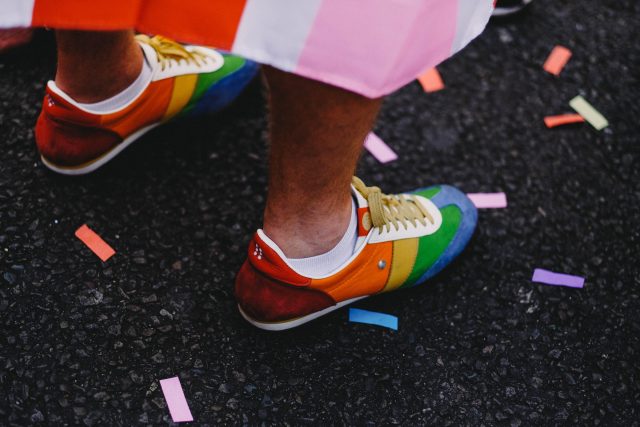Navigating Anti-LGBTQ+ Religions
By: Gregory E. Koch, Psy.D. | July 21, 2023

Empowering Strategies for Resilience and Growth
In today’s diverse society, it is disheartening to acknowledge that certain religious beliefs continue to marginalize and discriminate against the LGBTQ+ community. Anti-gay religions have a harmful impact on the lives and relationships of gay individuals, often causing emotional distress and feelings of isolation. This article will highlight positive coping mechanisms and strategies that empower gay individuals to navigate and triumph over these attempts at sabotage.
How to cope with anti-LGBTQ+ rhetoric:
1. Find a Supportive Community
A solid support system is paramount for any queer individual whose identity is being challenged, especially if it is within the context of anti-gay religions. Surround yourself with people who accept and celebrate your identity to nurture an environment that supports your personal growth and resilience. If you are not already a part of a queer community, seek out LGBTQ+ affirming organizations or social groups where you can connect with individuals who share similar experiences and struggles. If you are unable to access in-person support, online support can be a boon.
If you surround yourself with people who accept and celebrate your identity, you can create a nurturing environment for personal growth and resilience.
2. Develop Emotional Resilience
Anti-gay religious doctrines lead queer people to feel shame, guilt, and self-doubt. To overcome these hurdles, one must cultivate emotional resilience. Engaging in mindfulness, meeting with a trained therapist who specializes in working with the LGBTQ+ community, or practicing meditation will help you promote self-acceptance, increase self-compassion, and improve overall emotional well-being.
Your worth is not defined by the opinions of those who attempt to sabotage your life and relationships.
3. Educate Yourself and Others
Knowledge is a powerful tool to combat prejudice and misinformation. Educate yourself about different religions, their beliefs, and historical contexts. This knowledge will help you engage in meaningful conversations with individuals who hold anti-gay religious views. When you share your experiences and perspectives with others, it can shift hearts and minds, thus promoting acceptance and understanding. This approach may be helpful for some; however, some queer people may need to step back from religion entirely to protect their well-being. Check in with yourself about which approach is better for you (and see #4 below).
4. Set Healthy Boundaries
When navigating anti-gay religions, it is essential to establish and maintain healthy boundaries. You have the agency to decide who you allow into your life and how much influence they have over your well-being. Be assertive in communicating your boundaries with family, friends, or religious figures who may attempt to sabotage your relationships or impose their beliefs on you.
Setting boundaries is an act of self-care and self-empowerment.
5. Seek Professional Support
Therapy with a trained San Diego psychologist provides a supportive space to discuss the impact of anti-gay religions on your well-being. A qualified psychologist who specializes in working with LGBTQ+-related issues can help you develop coping strategies that are tailored to your unique circumstances. Your therapist will guide you through emotional challenges, help you develop valuable insights, and assist you in fostering resilience and personal growth.
6. Celebrate Personal Victories
A crucial aspect of self-care is to acknowledge and celebrate your personal achievements. Recognize and honor the steps you take towards personal growth, self-acceptance, and overcoming the obstacles imposed by anti-gay religions.
When you celebrate these victories, you reinforce your strength, resilience, and commitment to living an authentic and fulfilling life.
Facing attempts at sabotage by anti-gay religions is a tremendous challenge and extremely hurtful and painful for many LGBTQ+ people. It is important to remember that you are not alone. You will emerge from these challenges stronger and more empowered when you embrace supportive communities, develop emotional resilience, educate yourself and others, set boundaries, seek professional support, and celebrate your personal victories.
Together, we can work towards fostering acceptance, understanding, and equality for all members of the LGBTQ+ community. Please contact us to learn more about how therapy can help and have a wonderful Pride month!
Photo by Clem Onojeghuo on Unsplash



